- Home
- Anne Stuart
Shadows at Sunset Page 9
Shadows at Sunset Read online
Page 9
Life had just thrown him a curve he’d never expected. He had a sister.
And she wasn’t going to like what he had in store for her father.
“You’re naughty, darling,” Brenda said, removing the unfiltered French cigarette from Ted’s mouth and taking a long, elegant drag on it. “You shouldn’t tease the poor man.”
Ted Hughes snorted in gentle amusement. “He’s not a poor man, honeybunch. He’s after something, and I don’t like him in our house, bothering our girls.”
“They aren’t our girls, Ted,” Brenda said calmly.
“No, I suppose not.” He took the cigarette back from her, inhaled and then blew it out directly at the man’s prone figure, clearly distrustful.
Brenda was perched on the dresser in the Sea-moss Room, her negligee draped elegantly around her trim ankles. “Thank God you died in that gown,” he said unexpectedly. “If there’s one outfit I’d like to see you in for eternity, that’s it.”
A shadow crossed Brenda’s porcelain complexion. “I don’t like to talk about it, darling. You know that.”
“I know,” he said gently.
“It’s really too depressing,” she added with a little laugh, sliding down off the dresser. “We’re dead and nothing will change that. It’s best not to dwell on such things.”
“I suppose so,” Ted said doubtfully.
She paused, looking down at the nearly naked man lying on the old mattress. “He’s quite good-looking, isn’t he?” she said.
Ted shrugged, tossing his cigarette stub out the open French door. “If you like that sort of thing. What do you think he’s after?”
“What makes you think he’s after something?” Brenda questioned. “And as a matter of fact, I do like good-looking men. That’s why I’m here with you.”
“You’re here with me because we died together and something’s trapped us in this house,” Ted grumbled.
“Ted!”
“Forgive me, honeybunch. I’m just in a lousy mood. I know it upsets you to think about it.” He leaned over and kissed her perfect little nose. “So we won’t think about it. It doesn’t matter why we’re here—sooner or later it should be obvious. In the meantime, I like the way things are. Just you and me, together, with no one to interfere. The way it should have been.”
“You and me,” she echoed.
“Forever. As I always promised you, honeybunch.”
“Forever,” she said in a hollow voice. And then she smiled brightly. “I think Rachel-Ann’s finally arrived home. Shall we go see what she’s doing? If she’s brought someone home we can scare him away.”
“That’s my girl,” Ted said fondly. “Let’s go raise some hell.”
8
Rachel-Ann held her breath as she stepped inside the huge front hallway. She never knew when the ghosts would be waiting. She never had much warning. Somewhere she’d read that ghosts made everything cold. Maybe that accounted for the natural air-conditioning at La Casa, she thought without real humor.
She shut the door behind her, locking it carefully. It was so much easier when she was drinking—when she was loaded she didn’t see ghosts. Or if she did, they didn’t frighten her.
But here she was, stone cold sober and not very happy about the fact. She’d gone out with the intention of getting drunk. She was already past her previous record of sobriety, but for the past couple of days she’d felt strange, upset, and she had no idea why. She’d been perfectly ready to seduce the handsome man who’d somehow ended up at La Casa and knew where to find great pizza. She’d given up alcohol and drugs—surely she didn’t have to give up sex, as well. And Coltrane was just as gorgeous as Dean had told her.
But she’d taken one look into his cool green eyes the night before and felt oddly, faintly repelled. She couldn’t imagine why—there was very little she considered repellent, and if he was as amoral as Dean thought he was, it would be no worse than a number of other people she’d been involved with. At least he didn’t look like the type who hit.
But he made her uncomfortable, and no amount of rationalization could change her mind.
So she’d gone out last night and again tonight, looking for something to divert her. Someone young and strong and healthy, to fuck her to distraction and back again with no responsibilities, no names, leaving nothing but a smile and a memory in the morning.
She’d headed for the Kit-Kat Klub, but for some reason she never made it there. She’d ended up down at the Unitarian church, at another AA meeting, and she’d sat through it, numb, silent, listening to the words wash over her and seething with resentment underneath. She didn’t want to be there. Other people could drink and drug themselves into oblivion and then walk away from it. Why did she have to be trapped by an addiction she couldn’t control?
After the meeting a group of them went out for coffee, and Rachel-Ann went with them, as she always did, silent, sipping the bitter, too sweet coffee sludge and saying nothing. No one forced her to talk. They let her come with them, a silent, sad-eyed ghost as haunted as the house she lived in.
He was there again. She didn’t remember when she’d first noticed him, but he’d been at the last three meetings at the Unitarian church, he’d joined them for coffee and he’d watched her.
He was tall, almost too thin, with hair that needed cutting and clothes that needed pressing. She had no idea what he did for a living, only that he was “Hi, my name is Rico and I’m an alcoholic.” Hispanic, probably Mexican.
She couldn’t bring herself to talk to him. To meet his eyes. He shouldn’t be watching her—he’d know as well as she did that one of the major rules of recovery was not to get involved with anyone for the first year. She was having a hard enough time staying sober—if sleeping with someone managed to distract her from her need for a drink then she’d do it gratefully.
She didn’t want to sleep with a recovering alcoholic, though. He’d probably lecture her, drag her to meetings when she was sick and tired of them. She didn’t know why she still went when she hated them so much. Probably because she didn’t have anything else to do, and the alternative was to stay home alone with the ghosts.
She’d sat next to Rico, squeezed into a booth with a group of people whose lives she knew better than she knew her siblings’. Susan had been a hooker on Sunset Strip, and not the gorgeous Julia Roberts version. She was well over two hundred pounds, almost as tall as Jilly, with a foul mouth and the kindest eyes. Then there was Maggie, a divorced mother of three. She’d lost her children, she’d lost everything, and people kept telling Rachel-Ann that that was the only way you could recover. You had to hit bottom.
It seemed to Rachel-Ann that she’d hit bottom so damned many times she couldn’t get any lower. So why didn’t she have that fucking blissed-out serenity the rest of them had?
It must have been her frustration over Coltrane that had made her react to Rico. She wanted someone, anyone, and he was warm, strong and available. It would have been easy enough to ask him for a ride home, or offer him one. Any excuse not to be alone, not to come home to this shadowed house with the ghosts who watched her.
But in the end she hadn’t said a word, she’d simply watched as he climbed into an ancient Plymouth and driven off into the Hollywood night.
She moved through the house like a ghost herself, half hoping they were sleeping. Ghosts had to sleep sometime, didn’t they? She knew perfectly well who they were—the stories about the murder-suicide were the stuff of legends. Brenda de Lorillard had shot her married lover in the back of the head and then killed herself, rather than lose him. Her career had faded, Ted Hughes’s wife was making demands, and like something out of Sunset Boulevard she’d taken a gun and killed both of them. And now they watched and waited, trapped in the mansion that had once been the site of their grand passion.
Rachel-Ann had almost made it to the foot of the stairs when she smelled it. The scent of Ted Hughes’s imported cigarettes, mixed with a trace of Brenda’s French perfume. It was a combination
of smells like no other, and there were times when Rachel-Ann woke with the scent of them in her nostrils and felt comforted.
And then she’d remember who and what they were.
She glanced nervously over her shoulder as she started up the stairs, but there was no sign of them, just the telltale trace of perfume, the lingering hint of tobacco. She should have brought Rico back with her. He would have come, she knew it. He stared at her too much not to want her. If she’d brought him back to the old house the ghosts wouldn’t dare come closer, and for a night she wouldn’t have to be afraid.
Except that in the morning, or even sooner, he’d leave. She’d kick him out, and she’d be alone again, alone with the truth of what really terrified her. Not the ghosts of Hollywood.
But her own empty life.
As usual, Jilly couldn’t sleep. It was an annoying fact of life that she’d been troubled with insomnia ever since she was fifteen years old, and nothing, not sleeping pills, not biofeedback, not meditation, had any effect on it. She could even remember when it started, and she wished she didn’t.
She’d been staying with her grandmother. She was never sure why her grandmother chose to live at La Casa when she could have lived almost anywhere. It was only recently that Jilly had decided she’d lived there for the express purpose of keeping her son away.
Jilly’s parents had divorced in the late seventies, and for some reason Jackson had maintained custody of the children. In retrospect Jilly couldn’t figure out why he bothered—he never paid attention to any of them except Rachel-Ann. She’d assumed it was simply spite on his part, that Edith Walker Meyer had dared to leave him.
But when Edith had died in a car accident up near San Simeon Jackson had simply shipped his three children off to live with his mother at La Casa de Sombras. Jackson and Grandmère had a strained, hostile relationship at best, but Julia Meyer was one of the few people who got her way with him. She’d gotten his children for a few, important years, and she’d manipulated the legal system enough to keep La Casa out of his greedy hands for as long as possible. The house had remained empty for more than a decade after the murder-suicide. Then her grandmother had moved in, dispossessing the squatters who’d taken up residence, sinking far too much money against the inevitable decay of time. She’d lived there for a number of years in the early 1980s, pouring her energy and her money into the place, and when the three children had gone to stay with Grandmère, as she liked to be called, even though she didn’t have a drop of French blood in her, it had become the first real home Jilly had ever known.
Jilly had fallen in love with La Casa the first time she’d seen it. She’d always thought of it as Sleeping Beauty’s castle, surrounded by tangled growth, magic inside. While Dean had busied himself at school and Rachel-Ann had simply seemed unnerved by the place, young Jilly had thrown herself into Grandmère’s restoration projects with a full heart, looking for something, anything, to expend her love and energy on.
She’d lived there from age twelve to age seventeen, when she’d been sent off to college, and they’d been some of the best years of her life. Until the night at the swimming pool.
It had been a liability even back then. All the chemicals in the world hadn’t been able to keep it clear, and Grandmère had been ready to give up on it. But Jilly had been young, thoughtless, and the summer days in L.A. were hot. So were the summer nights.
It had started with a bet from Rachel-Ann. Jilly had been sitting in her sister’s bedroom, cross-legged on her water bed, watching Rachel-Ann get ready for a date. If you could call it a date—she was sneaking out with the son of one of the servants, meeting him in the pool house. Jilly didn’t even want to think about what she did there—she was already preternaturally worried about her siblings, since no one, not even Grandmère, seemed that concerned about their well-being.
“If you’re so hot go for a swim,” seventeen-year-old Rachel-Ann had said carelessly. “Grandmère just had the pool service in today so it should be relatively free from slime. I don’t see why she doesn’t just bulldoze the thing and have a new one dug. That pool is absolutely disgusting.”
“And you think that’ll make me want to go swimming?” Jilly had responded.
“Well, if you’re too chicken,” Rachel-Ann taunted. Her sister had been stronger then, confrontational. Not the fragile, wounded creature she was now. “No one’s seen the ghosts at the pool, y’know. They were found in the house, not on the grounds.”
“There aren’t any ghosts,” Jilly maintained.
“Just because you haven’t seen them doesn’t mean they don’t exist. Haven’t you smelled that tobacco-y smell? Or the perfume?”
“If I were you I wouldn’t call attention to any strange-smelling smoke.” Even at fifteen Jilly had been outspoken. “And everyone who walks into this house wears perfume, even Consuelo.”
“You’ll learn to be more discerning when you’re older. That’s French perfume, a very rare and costly blend, and it’s a far cry from anything a housekeeper would wear.”
“I thought you liked Consuelo,” Jilly protested. In the last few years Consuelo had been the closest thing to a mother Jilly could find, and she was devoted to her.
“I do. I just wouldn’t make her fashion choices.” Rachel-Ann had stepped back from the mirror, admiring her reflection. She’d dyed her red-gold hair a tawny brown, and she was even wearing brown-tinted contact lenses. She was more voluptuous back then, and the thin lace dress molded to her body like a second skin. “How do I look?”
“Gorgeous. Does Consuelo know?”
“Know what?”
“That you’re sleeping with her beloved son Enrique?”
“Richard,” Rachel-Ann corrected sharply. “He likes to be called Richard. And Consuelo’s plans aren’t necessarily his. She’s hopelessly hooked on the American dream, where her son becomes a doctor. Richard doesn’t want to be a doctor.”
“What does he want?”
“Me,” Rachel-Ann said calmly. “So, are you going for a swim?”
“What’s it to you?”
“We’ll be in the pool house and we’d like a little privacy. Keep your distance if you don’t want your precious innocence sullied.”
“Rachel-Ann, are you sure you know what you’re doing?”
“Don’t start with me, Jilly. I’m a big girl now. I can take care of myself.”
But she couldn’t, Jilly thought. Couldn’t then, couldn’t now, and yet no one seemed able to help her.
Of course Jilly had had no intention of going swimming that night. She knew that her sister was sleeping with Consuelo’s son, but that didn’t mean she wanted to walk in on them, or even be anywhere near them. But the night was stiflingly, sufferingly hot, and the house was too old to come equipped with central air-conditioning. Grandmère had a window unit in her downstairs suite, as did Consuelo in the spacious servants’ quarters, but the rest of them were supposed to make do with whatever breezes the L.A. nights could come up with.
There were none that night. Jilly lay on the bed in her shorty pajamas, feeling a coat of sweat cover her body like slime. She tried a cool shower, she tried a fan, she tried cold washcloths and ice cubes. By the time she heard Rachel-Ann tiptoe back up to her room she couldn’t stand it anymore.
The pool was clear, clean and definitely refreshing. A few laps would cool her off and tire her out enough to sleep.
Back then the gates were kept closed, and Consuelo’s husband and son did a decent job on security. Of course, Enrique—Richard—would be tired out after his tryst with Rachel-Ann, but his father, Jaime, was a responsible man. There would be no one lurking in the underbrush, waiting to grab her. This was La Casa de Sombras, the place she loved. She was safe there.
At least, until she passed the hedgerow of tangled roses and reached the top of the path leading to the pool. There was only a sliver of moon that night, and right then it hid behind a cloud, making the path barely visible. The water looked thick and black, even though co
mmon sense told Jilly it was fine. She could no longer smell the chemicals they’d dumped in that very afternoon. No stench of chlorine—instead there was the smell of rotting vegetation.
When she reached the edge of the pool she paused, suddenly unnerved. Even up close the water was dark, threatening and impenetrable. But the air surrounding her was like a cocoon of humid heat, and if she chickened out she’d be even hotter, sweatier, more miserable.
She took a step forward, ready to dive into the water, cotton pj’s and all, when the moon slid out from behind a cloud. Suddenly it was another time, another night, long ago before she’d ever been born. Just as Jilly dived, a face appeared in the water beneath her, a face from a dream. It was the face of her sister.
She screamed, but it was too late. She twisted in the air, hitting the water with a belly flop, and the water was warm, thick, fetid around her. She went under, swallowing some of the dank stuff, and then pushed herself to the surface again, swimming toward the edge with a panicked strength. It felt as if the water were full of weeds, clinging to her, wrapping around her wrists and ankles, tangling in her hair, trying to pull her under with the woman who lay beneath the water. The woman who was Rachel-Ann, and yet who wasn’t. With a final burst of terror Jilly reached the side of the pool, vaulting out of it with a strength she never knew she had.
She didn’t dare look back. She simply ran, screaming, up to the house, no longer caring whom she frightened, who was torn out of a deep sleep. Her sister was dead in the pool, someone had tried to kill her, and a stranger was in the house.
The lights were flooding the wide stone terrace as Jilly stumbled toward the house, and Grandmère was already standing in the doorway, with a rumpled Consuelo and Jaime beside her. Jaime had a gun, and for a brief, hysterical moment Jilly thought he looked like something out of Viva Zapata! with his bristly mustache and his pajamas.
“It’s Rachel-Ann,” she sobbed, stumbling into the house. “She’s in the pool. She’s dead….”

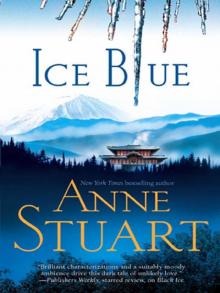 Ice Blue
Ice Blue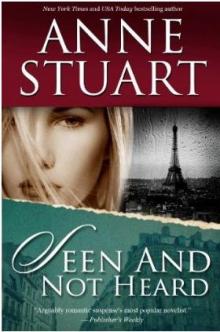 Seen and Not Heard
Seen and Not Heard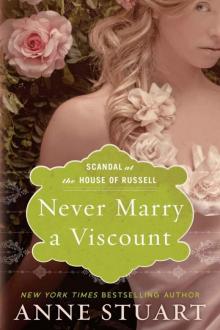 Never Marry a Viscount
Never Marry a Viscount Heartless
Heartless The Devil's Waltz
The Devil's Waltz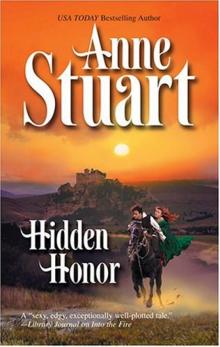 Hidden Honor
Hidden Honor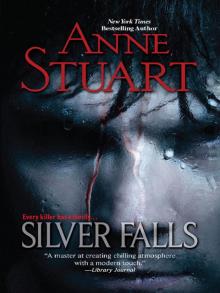 Silver Falls
Silver Falls Fire and Ice
Fire and Ice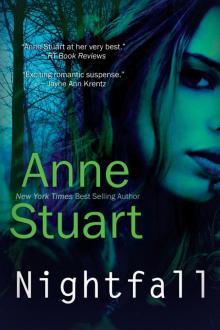 Nightfall
Nightfall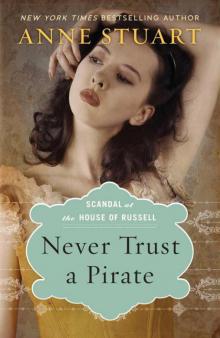 Never Trust a Pirate
Never Trust a Pirate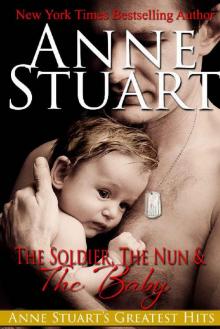 The Soldier and the Baby
The Soldier and the Baby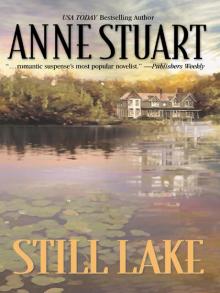 Still Lake
Still Lake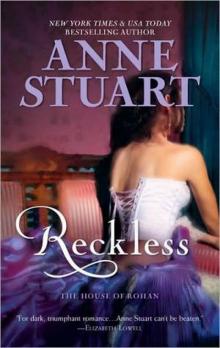 Reckless
Reckless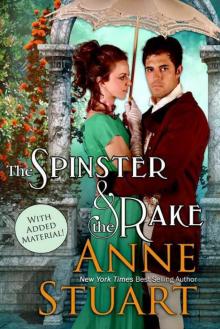 The Spinster and the Rake
The Spinster and the Rake Winter's Edge
Winter's Edge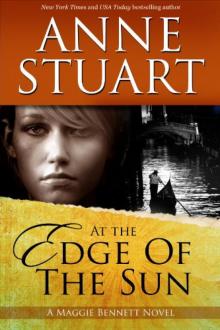 At the Edge of the Sun
At the Edge of the Sun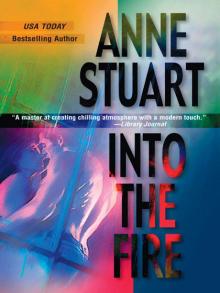 Into the Fire
Into the Fire Night of the Phantom
Night of the Phantom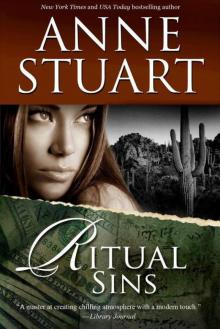 Ritual Sins
Ritual Sins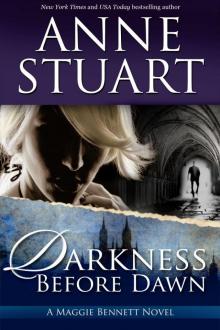 Darkness Before the Dawn
Darkness Before the Dawn Against the Wind
Against the Wind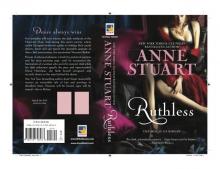 Ruthless
Ruthless The Catspaw Collection
The Catspaw Collection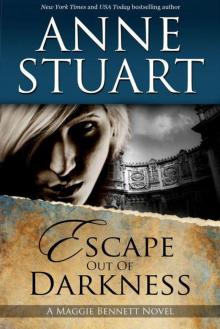 Escape Out of Darkness
Escape Out of Darkness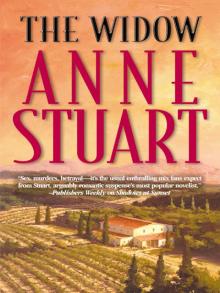 The Widow
The Widow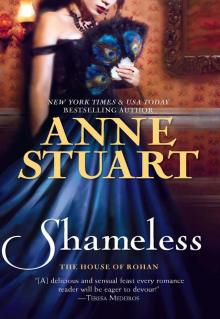 Shameless
Shameless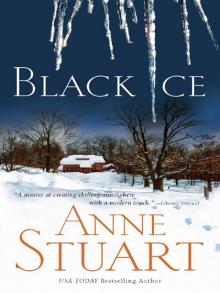 Black Ice
Black Ice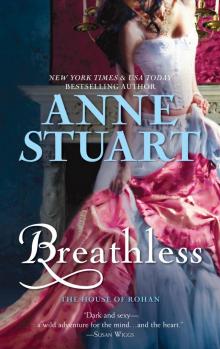 Breathless
Breathless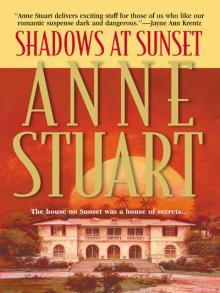 Shadows at Sunset
Shadows at Sunset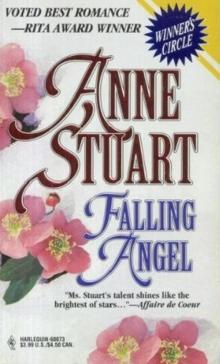 Falling Angel
Falling Angel Housebound
Housebound Cold as Ice
Cold as Ice The Wicked House of Rohan
The Wicked House of Rohan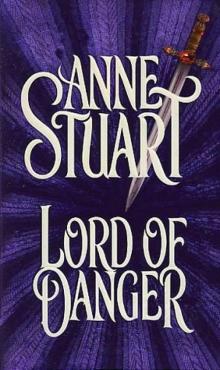 Lord of Danger
Lord of Danger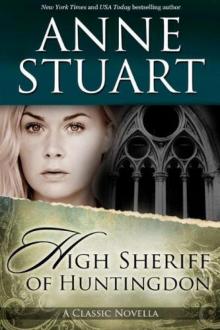 The High Sheriff of Huntingdon
The High Sheriff of Huntingdon Wildfire
Wildfire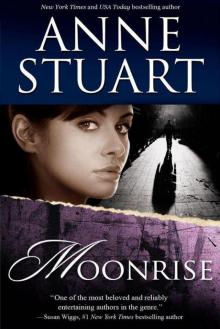 Moonrise
Moonrise The Demon Count's Daughter
The Demon Count's Daughter Date With a Devil
Date With a Devil To Love a Dark Lord
To Love a Dark Lord Driven by Fire
Driven by Fire Special Gifts
Special Gifts Ice Storm
Ice Storm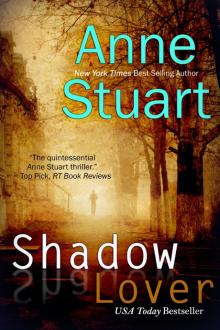 Shadow Lover
Shadow Lover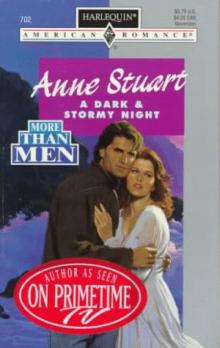 A Dark & Stormy Night
A Dark & Stormy Night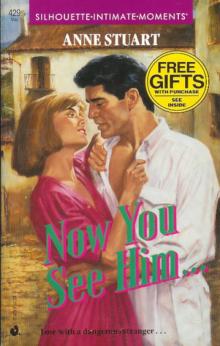 Now You See Him...
Now You See Him... Lady Fortune
Lady Fortune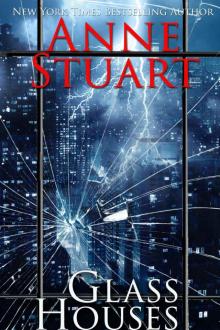 Glass Houses
Glass Houses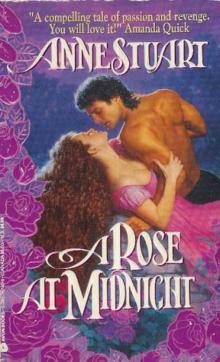 A Rose at Midnight
A Rose at Midnight Prince of Swords
Prince of Swords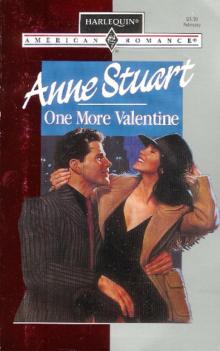 One More Valentine
One More Valentine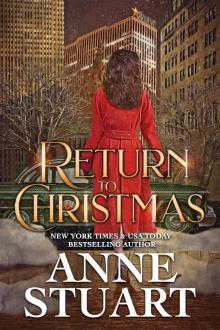 Return to Christmas
Return to Christmas Tangled Lies
Tangled Lies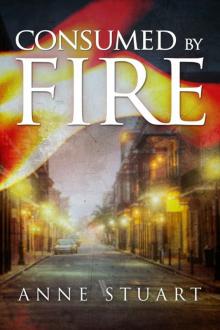 Consumed by Fire
Consumed by Fire The Fall of Maggie Brown
The Fall of Maggie Brown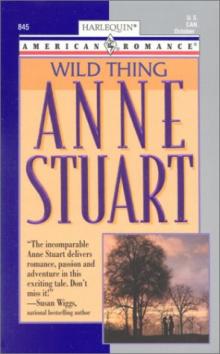 Wild Thing
Wild Thing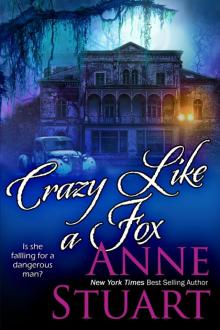 Crazy Like a Fox
Crazy Like a Fox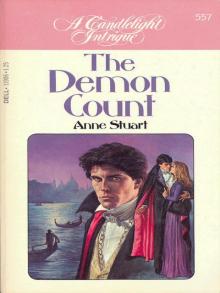 The Demon Count
The Demon Count Prince of Magic
Prince of Magic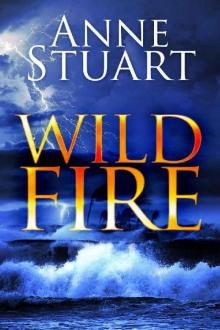 Wildfire (The Fire Series Book 3)
Wildfire (The Fire Series Book 3)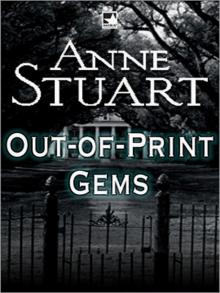 Anne Stuart's Out-of-Print Gems
Anne Stuart's Out-of-Print Gems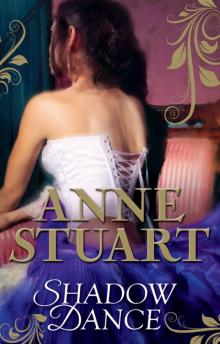 Shadow Dance
Shadow Dance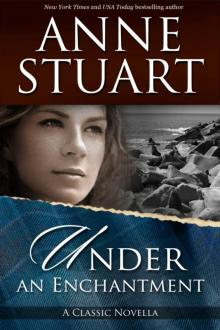 Under an Enchantment: A Novella
Under an Enchantment: A Novella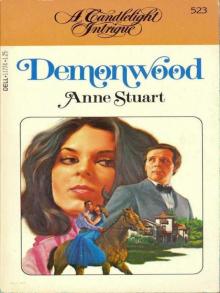 Demonwood
Demonwood Blue Sage (Anne Stuart's Greatest Hits Book 3)
Blue Sage (Anne Stuart's Greatest Hits Book 3)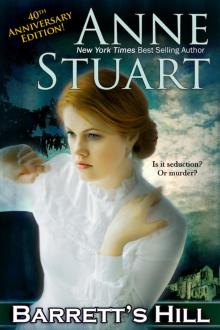 Barrett's Hill
Barrett's Hill Angel's Wings (Anne Stuart's Bad Boys Book 5)
Angel's Wings (Anne Stuart's Bad Boys Book 5)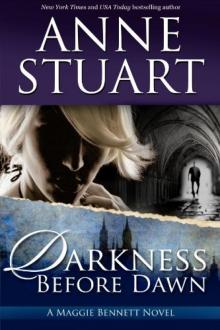 Darkness Before Dawn
Darkness Before Dawn The Right Man
The Right Man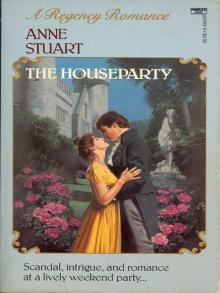 The Houseparty
The Houseparty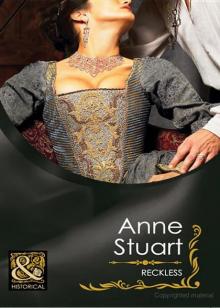 Reckless_Mills & Boon Historical
Reckless_Mills & Boon Historical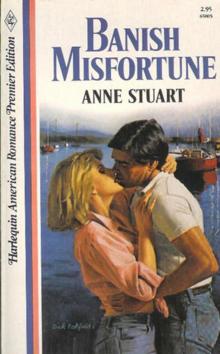 Banish Misfortune
Banish Misfortune Angel's Wings
Angel's Wings Chain of Love
Chain of Love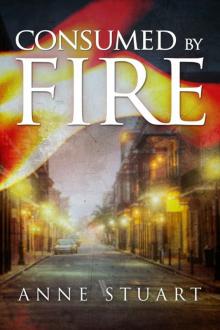 Consumed by Fire (The Fire Series)
Consumed by Fire (The Fire Series)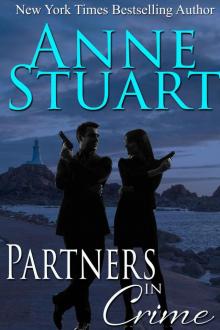 Partners in Crime (Anne Stuart's Bad Boys Book 4)
Partners in Crime (Anne Stuart's Bad Boys Book 4)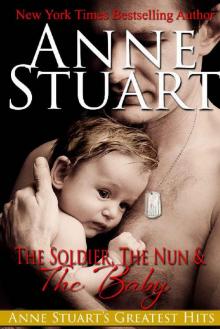 The Soldier, The Nun and The Baby (Anne Stuart's Greatest Hits Book 2)
The Soldier, The Nun and The Baby (Anne Stuart's Greatest Hits Book 2)